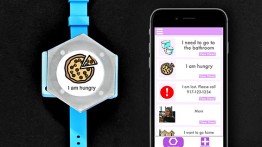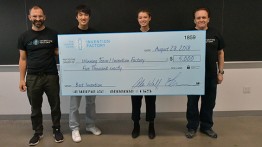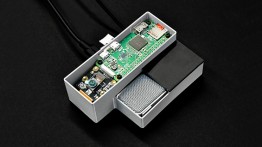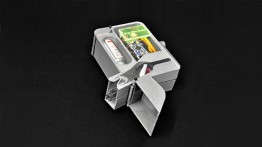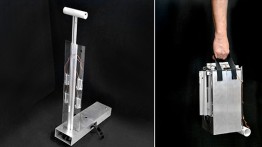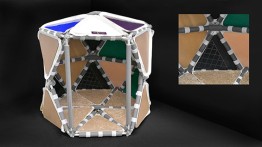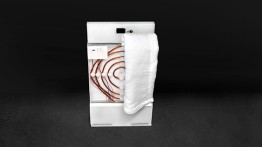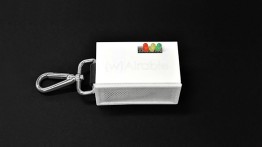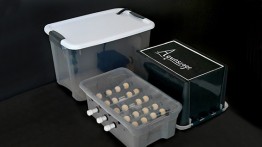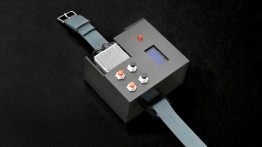2018 Invention Factory Winner: Twist Talk
POSTED ON: September 12, 2018
Brian Chung, an electrical engineering sophomore and Hannah Quirk, a mechanical engineering sophomore, took home top prize in the sixth annual Invention Factory, standing in the winner's circle with the big $5000 check for their invention, Twist-Talk, a portable communication aid for children on the autism spectrum.
"Twist-Talk looks like a watch and provides tactile feedback, addresses hypersensitivity issues, and is completely customizable by the parent," Brian says. "Every time a child rotates the bezel of the watch, a new need like, 'I am hungry,' will appear. Once the child finds the need she wants, she presses down on the face of the watch. The need is spoken out loud, and a notification is sent to the parent’s cell phone."
"Hannah and Brian tackled a significant problem and crafted a simple and elegant solution that excited the experts," Alan Wolf, professor of physics and co-founder of Invention Factory, says. "Their prototype not only worked well but took into account the special needs of their target market. Autistic children are often hypersensitive to common materials, lack fine motor skills and are easily distracted. Every one of the team’s design decisions took these needs into account."
Invention Factory, an annual summer program, teaches students to conceive of and prototype inventions that they present each week to guest evaluators, culminating in a final competition where a panel of distinguished designers, inventors, engineers, and patent attorneys choose the best inventions. This year's judges included: Eugene Briskman CE'64, Carmelle Cadet, Ben Itri EE'75, Hemant Kanakia, Ebele Kemery EE'007, Jimmy Kwong ChE;80, Stan Lapidus EE'70, Tricia Lee, Ron Mehta, Barry Negrin ME'89, Ron Slusky, and Ron Vogel ME’70. Founded at The Cooper Union in 2013, the program is funded by the Edward Durbin and Joan Morris Innovation Fund as well as individual donations. It has since expanded to Syracuse University and, this year, ITT Gandhinagar in India.
This year’s runner-up prize went to Yuval Ofek, an electrical engineering sophomore, and Paulo Serodio, a general engineering sophomore, for Fallback, an at-home alert system for seniors living alone. It works like a smart speaker with motion detection to alert first responders upon command or, more urgently, when someone is not moving and non-responsive.
"It makes me so proud that our students, given the chance to invent anything they choose, consistent with their budget and safety considerations, almost always focus on those in need," Eric Lima, associate professor of mechanical engineering and the other co-founder of Invention Factory, says. "Students identify and design solutions for the needs of senior citizens, autistic children, deaf people, asthmatics, and similarly challenged individuals. It has been enormously gratifying that the structure of Invention Factory – resources, mentorship, no distractions – helps our students become good citizens.”

